FM Qureshi for collective efforts against “pandemic of hate” under SDGs agenda
ISLAMABAD: Foreign Minister Shah Mahmood Qureshi Thursday while drawing attention towards a “deadly pandemic of hate” called for collective efforts against extremism, systemic racial discrimination and exclusion threatening the political, legal and moral foundations of several states.
“Undoubtedly, we are all confronted by another virus and a deadly pandemic of hate… We must collectively address the threat posed by racial and other forms of inequalities,” the foreign minister said addressing the special meeting of the United Nations Economic and Social Council (ECOSOC) on “Reimagining Equality: Eliminating racism, xenophobia and discrimination for all in the decade of action for the SDGs.”
He said it was indeed an appropriate time for the international community to recommit upholding the fundamental principles of human rights and to guaranteeing substantive equality for all, in line with 2030 Agenda of Sustainable Development Goals.
Under his four-point roadmap, the foreign minister proposed the inclusion of objectives of promoting racial, ethnic and religious equality, redressing historic inequalities and injustices of the past, as part of the concept of “building back better” from Covid-19 and achieving the SDGs.
He called for adoption of action plans by all concerned states to ensure equality and improve the economic situation of people of African descent and other oppressed ethnic and religious groups facing discrimination.
Besides emphasizing increase in the representation of people of African descent in global institutions and leadership positions, as well as building a global alliance against the rise and spread of Islamophobic, anti-sematic and other violent nationalist and racist groups.
He said reducing systematic inequality and eliminating racism, including its contemporary manifestations, were at the heart of the 2030 Agenda for SDGs.
“The SDGs are visionary in their stated commitment to “leave no one behind”. They aim to bring an end to all forms of discrimination and inequality, including racism. Yet, racial equality is under attack globally. Expressions of racial hatred, religious supremacy and violent nationalism have moved from the fringe to political mainstream,” he said.
He pointed out that the assault on the human dignity of millions around the world had reached alarming proportions – from resurgence of neo-Nazi and other violent nationalist groups, to the racist and xenophobic attitudes of politicians; from pervasive Islamophobia and racial profiling of Muslims, to excessive use of force by law enforcement agencies against people of African descent.
“Even in our own region, hateful political rhetoric and incitement to violence against vulnerable ethnic and religious groups has resulted in discriminatory citizenship laws, attacks on places of worship and repeated state sponsored pogroms against minorities. All the while brutal occupation and suppression of peoples struggling for their right to self-determination continues unabated,” told the meeting.
Foreign Minister Qureshi said the COVID-19 pandemic had further intensified the divisions and reinforced racial discrimination and aggravated existing inequalities besides disproportionately impacting racial minorities.
The racial minorities had also been subjected to harsh treatment by law enforcement in the context of emergency measures and to unequal access to health care and social protection.
The minister said the pandemic also amplified racist and xenophobic sentiments, with popular calls to deport, quarantine and segregate migrant workers, most of whom belong to developing countries.
In some instances, people belonging to racial, religious or ethnic minorities have been subjected to hate speech and vile conspiracy theories accusing them of spreading the virus, he added.
“All this has happened in our region as well,” he remarked. He said the people of African descent continue to endure intolerable discrimination in many parts of the world.
It is vital for the international community to address the structural drivers of racial inequality including those rooted in the history and legacy of colonialism, Qureshi said.
Referring the UN Secretary General’s words against colonialism creating vast inequalities, within and among nations during his annual Nelson Mandela lecture, the foreign minister said while the wave of decolonization swept the world in the aftermath of the Second World, the legacy of colonialism was still reflected in international economic and political system.
“We continue to witness this in the discriminatory global trade and financial structure. It is also visible in the economic and social injustices and non-inclusive nature of global financial institutions. Discriminatory migration and employment policies, fueled by xenophobia and racism, continue to be tolerated in many societies,” he said.
Qureshi said two decades after the Durban Conference, the recognized nexus between racism, xenophobia, and related intolerance and timely achievement of SDGs has to be acknowledged and addressed. NNI



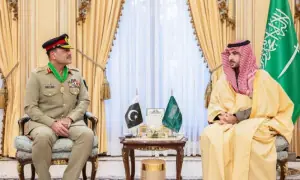
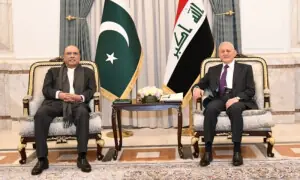
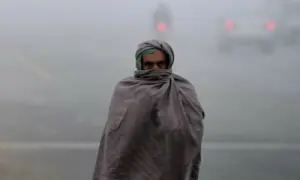



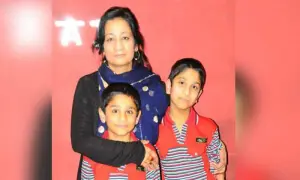
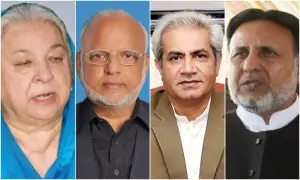
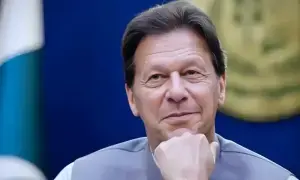

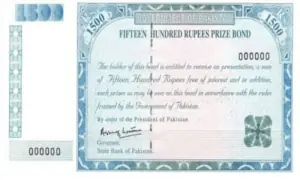
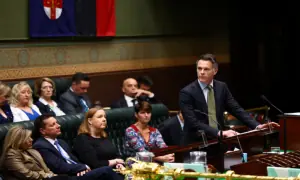
Comments are closed on this story.